Awareness Survey of 18-Year-OldsResults of 26th installment announced
The 26th installment of the Awareness Survey of 18-Year-Olds, launched by The Nippon Foundation in October 2018, was carried out in late May on the theme of the “School Education and Starting the School Year in September.” The survey showed that main inconveniences respondents felt in response to school closings from early March to stop the spread of the new coronavirus were keeping up with their studies, missing friends and communication, and preparing for entrance exams and pursuing higher education or employment.
Notes:
- From the 13th survey, the number of respondents, comprising men and women aged 17 to 19, has been increased to 1,000 from 800. (With the exception of the 20th installment, “Awareness Survey of Society and Country,” all surveys cover respondents in Japan only.)
- In the information below, differences between total amounts and simple sums are due to rounding.
Survey 26. School Education and Starting the School Year in September (Preliminary results announced on June 11 and full results announced on June 30, 2020)
Finding: Respondents’ main inconvenience regarding school closings was “Not being able to keep up with my studies.” (n = 1,000)
“What was your main inconvenience regarding school closings?”
- Not being able to keep up with my studies – 37.4%
- Missing friends and communication – 20.3%
- Preparing for entrance exams and pursuing higher education or employment – 17.8%
- Cancellation of club activities – 9.3%
- Cancellation of athletic and cultural events – 4.1%
- The cost of educational fees – 2.2%
- Cancellation / curtailment of graduation ceremonies and entrance ceremonies – 2.1%
- Cancellation of school trips – 1.4%
- Others – 5.4%
Finding: Close to 60% of respondents felt that school closings will lead to gaps in education. (n = 1,000)
“Do you believe that school closings will lead to gaps in education?”
- Yes – 58.6%
- No – 15.8%
- Don’t know – 25.6%
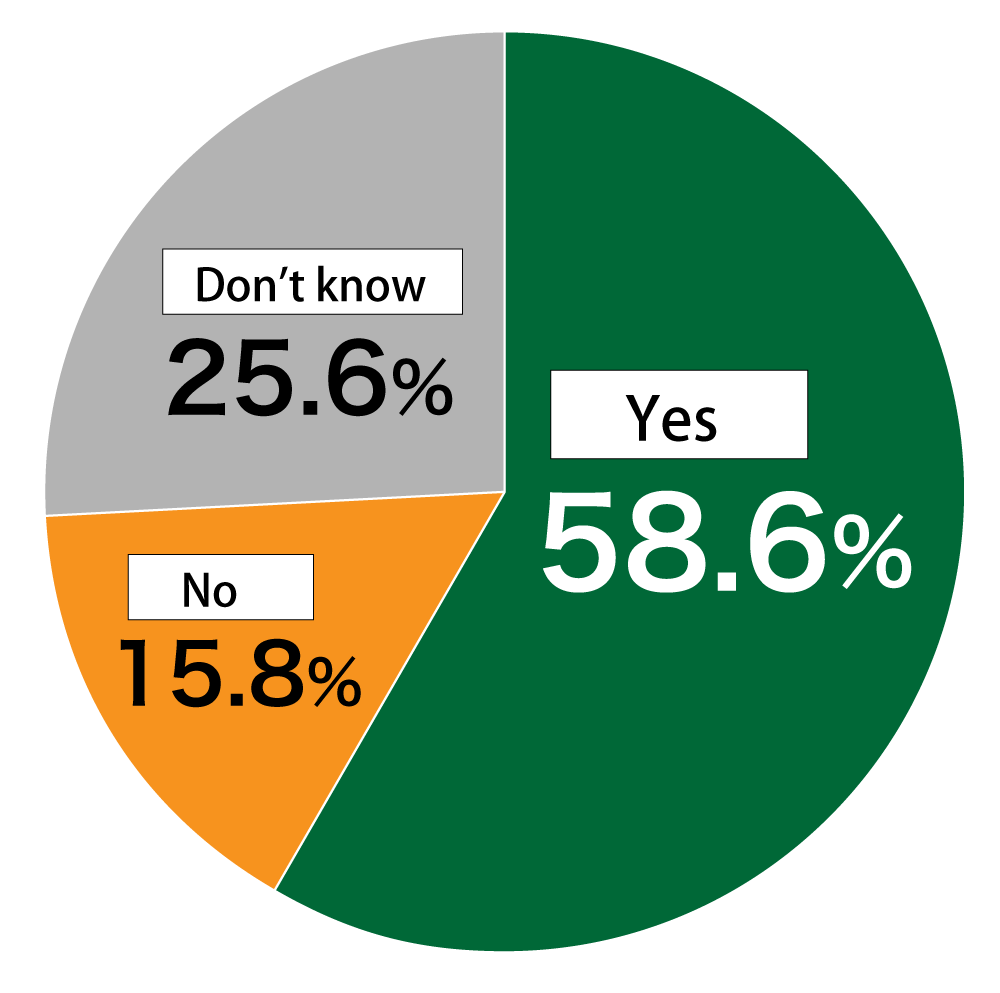
When asked how delays in education should be addressed, the top responses were: (multiple answers allowed; n = 1,000)
- Increased online instruction – 52.5%
- Shortening of summer vacation and other vacation periods – 38.8%
- Starting the school year in September and delaying graduations – 25.9%
- Holding classes on Saturdays, Sundays, and holidays – 22.4%
- Revising curriculum guidelines and cutting back on subjects taught – 20.8%%
- Don’t know – 10.3%
- Others – 1.0%
Finding: Slightly more than one-third of respondents approve of moving the beginning of the Japanese school year to September from April. (n = 1,000)
“Do you approve of moving the beginning of the Japanese school year to September?”
- Approve – 38.4%
- Oppose – 31.2%
- Don’t know – 30.4%
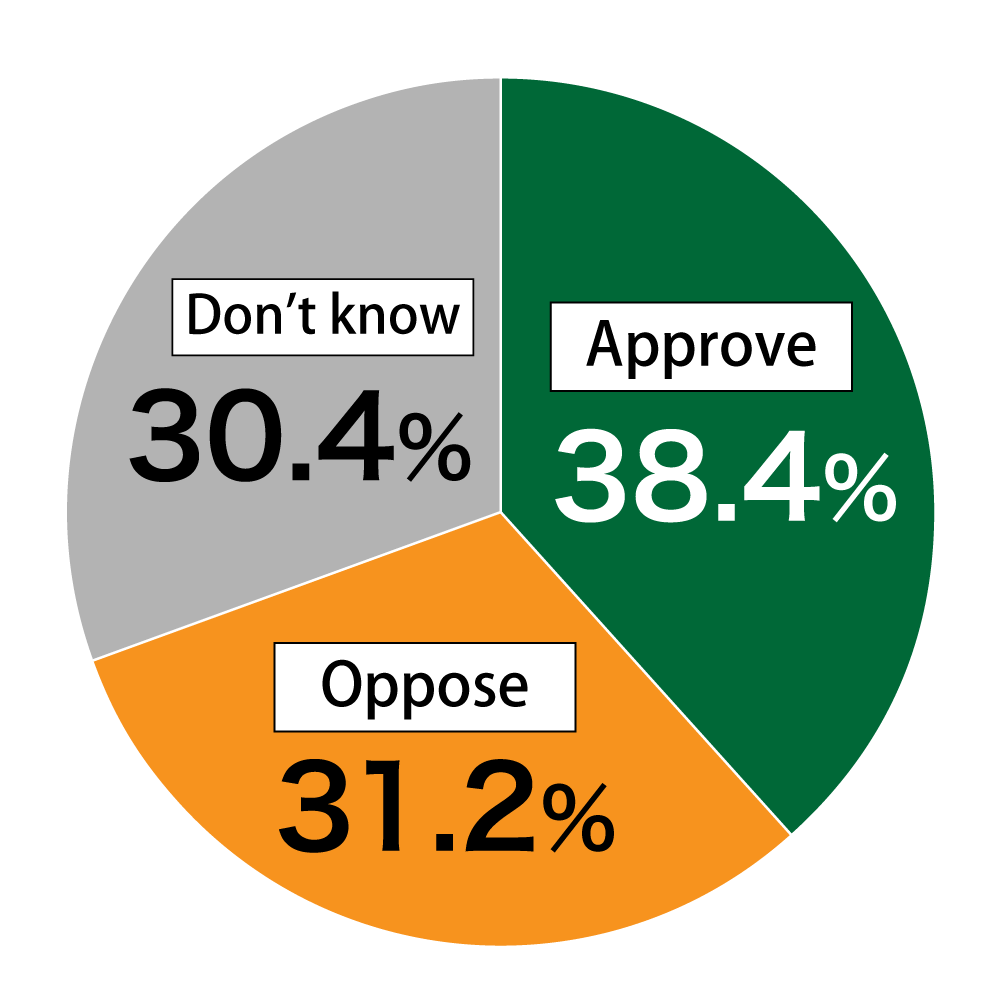
Of those respondents who approved of moving the beginning of the school year to September, the most cited reasons were (multiple answers allowed; n = 384):
- It could reverse delays caused by school closings – 81.3%
- Entrance exams in winter weather could be avoided – 37.5%
- It would make it easier to study abroad – 36.5%
- Young people would be able to participate in more international events – 29.2%
- More students from abroad could study in Japan – 21.9%
- It would be easier for students who have studied abroad to find jobs in Japan – 18.8%
- Others – 4.7%
Of those respondents who opposed moving the beginning of the school year to September, the most cited reasons were (multiple answers allowed; n = 312):
- It would affect entrance exams – 55.4%
- Springtime graduation ceremonies and entrance ceremonies are part of Japanese culture – 39.1%
- The shift would place a greater burden on individuals – 36.9%
- The shift would place a greater burden on national and school finances – 28.5%
- It should be considered carefully after conditions return to normal – 26.0%
- It could lead to talented people moving overseas – 3.8%
- Others – 12.8%
Of all respondents, the top issues that were seen as needing to be addressed if the beginning of the school year is moved to September were (single answer; n = 1,000)
- Coordination of school years during the transition period – 32.6%
- Coordination and public awareness of entrance exams – 25.5%
- Coordination with companies’ recruitment activities – 15.4%
- School operations – 11.5%
- Don’t know – 14.0%
- Others – 1.0%
Finding: In the event schools need to be closed again, roughly half of respondents thought that making preparations for online learning should be the top priority for continuing studies. (single answer; n = 1,000)
“What do you think is needed for students to be able to continue studying in the event schools need to be closed again?”
- Preparations to implement online learning – 50.8%
- Designing classes to incorporate studying at home – 16.6%
- Don’t know – 10.2%
- Increased financial aid – 8.2%
- A structure for closer contact with students – 6.9%
- Increased classwork for lower grades that can be done independently – 3.6%
- Methods to allow club activities to continue – 3.3%
- Others – 0.4%
Findings: More than 70% of respondents have an environment available for studying at home and have online tools for work or study, while less than half got used to online studies and maintained their motivation to study. (n = 1,000)
“Do you have an environment available for studying at home?”
- Agree – 48.7%
- Somewhat agree – 31.1%
- Neither agree nor disagree – 15.0%
- Somewhat disagree – 2.8%
- Disagree – 2.4%
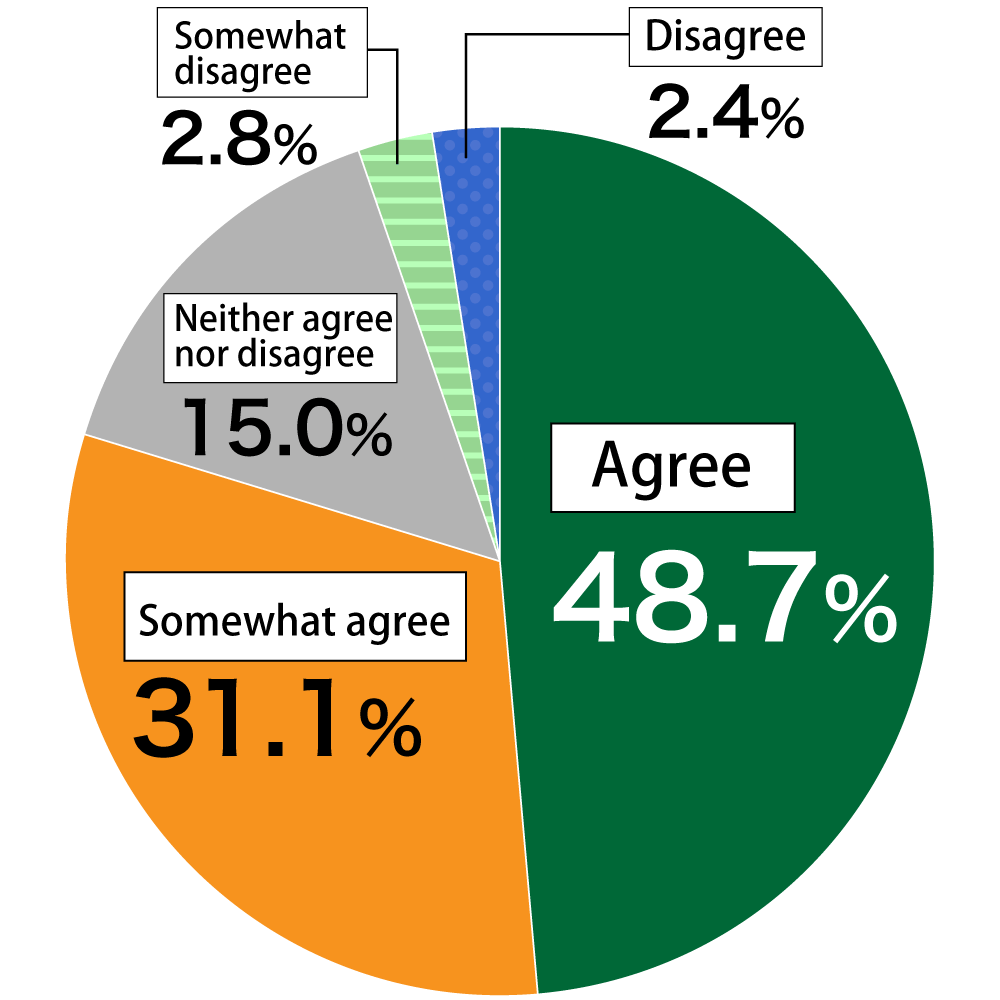
“Are there online tools that you can easily use as needed to work or study?”
- Agree – 46.5%
- Somewhat agree – 30.7%
- Neither agree nor disagree – 15.7%
- Somewhat disagree – 3.3%
- Disagree – 3.8%
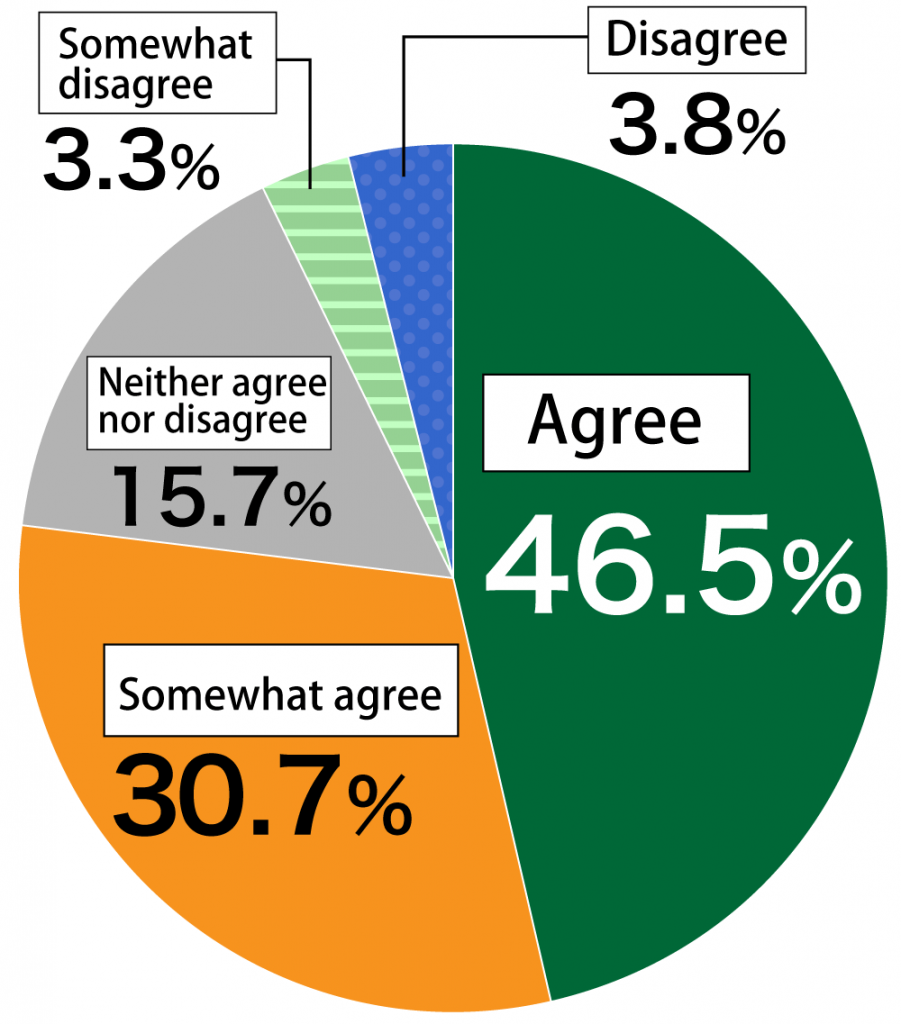
“Did you get used to studying online?”
- Agree – 19.3%
- Somewhat agree – 22.8%
- Neither agree nor disagree – 26.2%
- Somewhat disagree – 15.8%
- Disagree – 15.9%

“Were you able to maintain your motivation to study while schools were closed?”
- Agree – 12.6%
- Somewhat agree – 19.7%
- Neither agree nor disagree – 33.6%
- Somewhat disagree – 20.3%
- Disagree – 13.8%
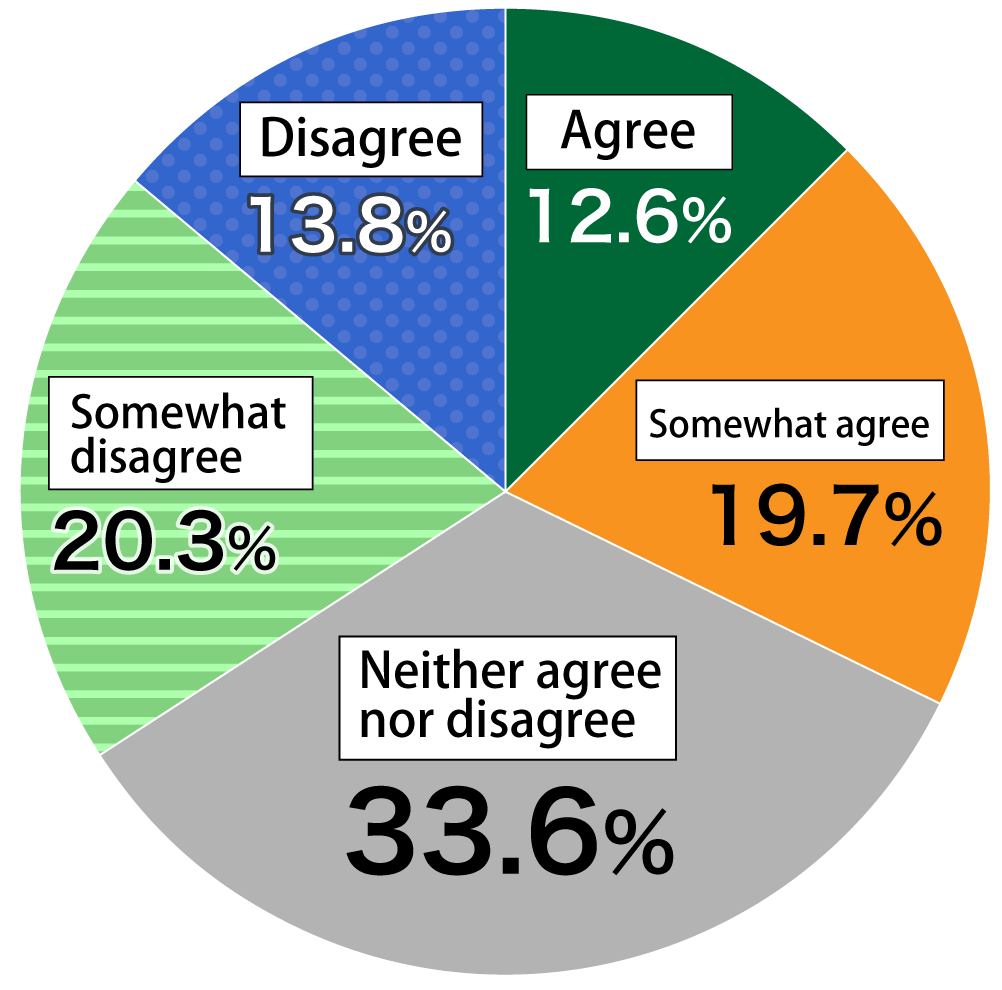
Finding: More than 20% of respondents thought that curriculum should be introduced that allows students to advance in subjects at which they excel, and roughly 20% of respondents thought that the current credit system should be revised. (single answer; n = 1,000)
“What system do you thing should be introduced in education in Japan?”
- Don’t know – 29.1%
- Curriculum should be introduced that allows students to advance in subjects at which they excel – 22.9%
- The system of credits per school year throughout all school years should be revised – 20.8%
- Being able to skip a grade or graduate early – 16.8%
- Making it easier for junior and senior high school students to study abroad – 8.8%
- Others – 1.6%
Related Link
Contact
Public Relations Team
The Nippon Foundation
- Email: cc@ps.nippon-foundation.or.jp


